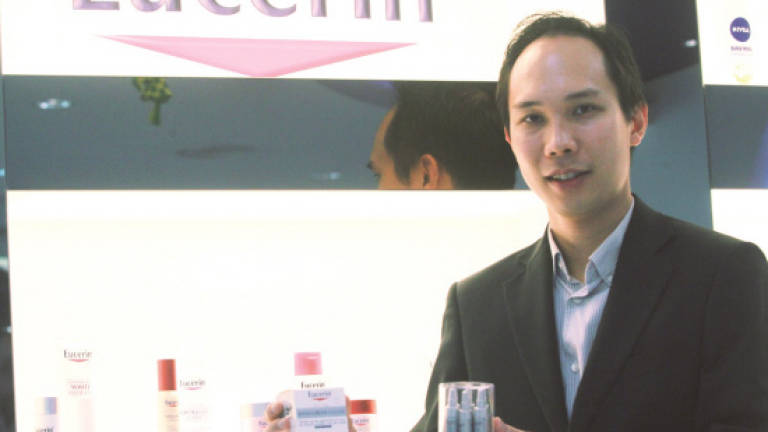Precision formula care for skin

STEP into a pharmacy or the beauty section of a department store today and you may be overwhelmed by the array of skincare products available.
So what influences your decision? Should it be price, packaging, advertisements and endorsements or recommendations from friends?
Actually, none of the above. After all, you and your friends will have different skin types and even expensive salon products may not be suitable for your skin.
On the other hand, derma skincare (or cosmeceutical) products focus on precise formulas for skin health and treats disorders from acne-prone and sensitive skin to ageing skin.
Associate Prof Dr Adrian Yong, Medical Director of AY Skin Specialist Clinic, says derma skincare products are the result of research and development by dermatologists who work with chemists to combine cosmetic benefits with the efficacy of pharmaceutical products.
Popular in many Asian markets, from Thailand to Japan, derma skincare, unfortunately, hasn't caught the interest of Malaysians as there is a general misconception that it is for the treatment of skin diseases such as psoriasis and eczema (atopic dermatitis).
While derma skincare does treat specific skin conditions effectively, it is also formulated to address problems such as wrinkles, uneven pigmentation and dull skin. They are developed by dermatologists and backed by scientific data. In fact, many derma brand founders are dermatologists or scientists.
What sets them apart is that they have precise formulations of active ingredients and are the result of years of research, development and clinical trials.
Unlike cosmetic products (which act more as cover-ups) and drugs (controlled drugs prescribed by doctors), derma skincare offers the benefits of both and can be used to treat mild skin problems.
The products are also not just "Dermatologist Tested" but are recommended by dermatologists. Terms like "Clinically Proven/Tested" often imply stringent testing but most of the time, details on the clinical trial, sample group and the results are not stated. Claims like "9 out of 10" may be irrelevant if the product is tested only on a small group.
Before you buy any product, Yong's advice is to think of the 3Es:
1 EXPERTISE: Seek skincare experts such as dermatologists, to determine your skin type which is also affected by climate, diet etc.
2 EXPERIENCE: Apply the product at least once over a test area to ensure there are no allergy reactions. If possible, ask for sample sachets to do a two-day test.
3 EXPOSURE: Consumers should take charge of what they use and they should find out and be aware of the ingredients and their
efficacy.
Generally, ingredients are listed on labels in descending order, so the first item listed will be that in the largest quantity and the last item may only be a trace. But some active ingredients are required only in small amounts, so these would be at the bottom of the list. Derma skincare brands usually list active ingredients separately.
Stronger or more ingredients aren't always better; only a precise formulation will give the best results. In derma skincare, active ingredients form the core of each product to address specific issues such as wrinkles or pigmentation.
Because of the extensive research, precise formulation and quality ingredients, derma skincare products cost more but, in the long run, pay off in healthier skin. They are also more exclusive and are most likely sold only in pharmacies and personal care stores.
First, understand your skin type and condition:
1 Myth: Oily, acne-prone skin needs frequent washing with strong
cleansers.
Truth: Over-washing causes sensitivity and harsh products irritate the skin. Acne is marked by shedding of skin cells, increased production of sebum, bacterial infection and
inflammation.
2 Myth: For dry skin, use heavy, thick cream.
Truth: Thick, heavy creams block pores. Dry skin simply means it produces less sebum and is less able to retain moisture.
3 Myth: Use only natural/organic ingredients for sensitive skin
Truth: The use of natural ingredients in skincare is not governed so it can be difficult to determine if these are authentic. Sensitivity can also be caused by stress, environment and substances that are deemed fine for normal skin.
4 Myth: As long as I use skincare, my skin will not age fast.
Truth: Ageing skin is affected by genetics, hormonal changes, slower metabolism and blood circulation as well as smoking, UV exposure and pollution. Other issues are dryness and sensitivity, reduced elasticity, sagging, dullness and fine lines/
wrinkles.